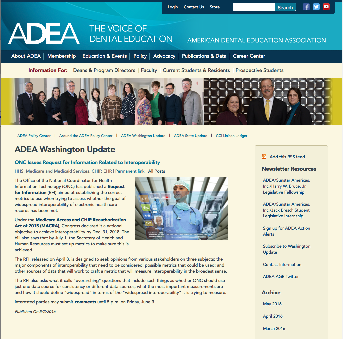ONC Issues Request for Information Related to Interoperability
Permanent link All Posts
The Office of the National Coordinator for Health Information Technology (ONC) has published a Request for Information (RFI) aimed at establishing the correct metrics to use when trying to assess whether the goal of widespread interoperability of electronic health care records has been met. It's exciting, because this means the government is serious about actual real interoperability: they want to define a way to measure how well medical software can communicate with each other.why is this cool?
more details
Under the Medicare Access and CHIP Reauthorization Act of 2015 (MACRA), Congress declared it a national objective to achieve interoperability by Dec. 31, 2018. The bill also says that by July 1, the Secretary of Health and Human Resources must set up metrics to make sure this is achieved.
The RFI, released on April 8, is designed to seek opinions from various stakeholders on three subjects: the major components of interoperability that need to be considered; possible metrics that could be used; and other sources of data that will work to craft a metric that will measure interoperability in the broadest sense.
The RFI also asks what it calls “overarching” questions that include such things as whether ONC should use just one data source for consistency or different data sources, what the most important measurements are and how it should define “widespread” in terms of the “widespread interoperability” it is trying to measure.
Interested parties may submit comments until 5 p.m. on Friday, June 3.




